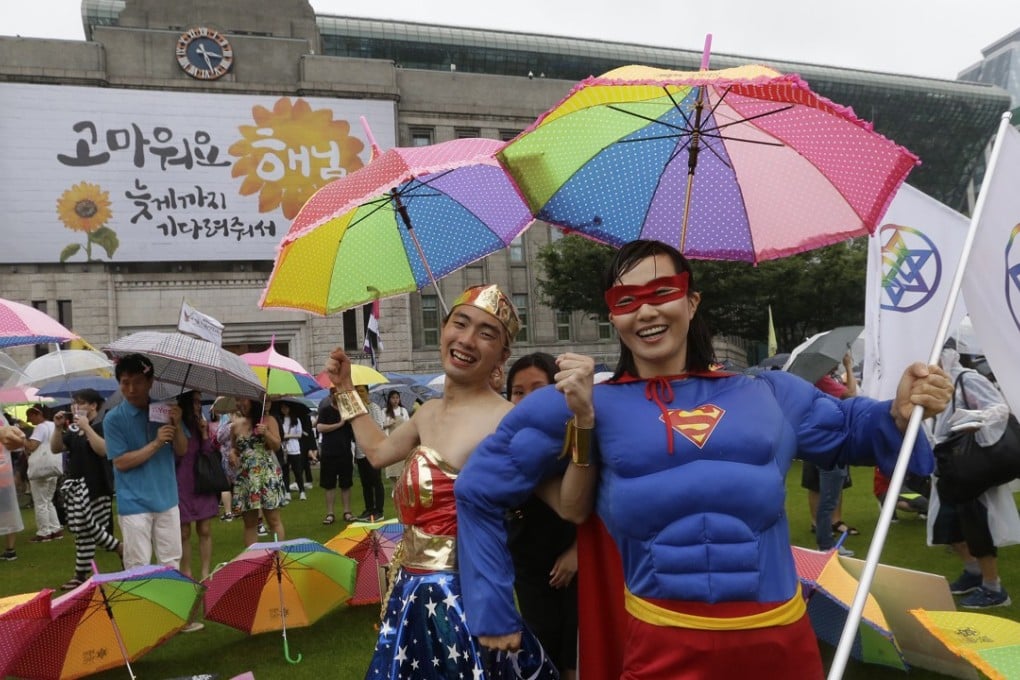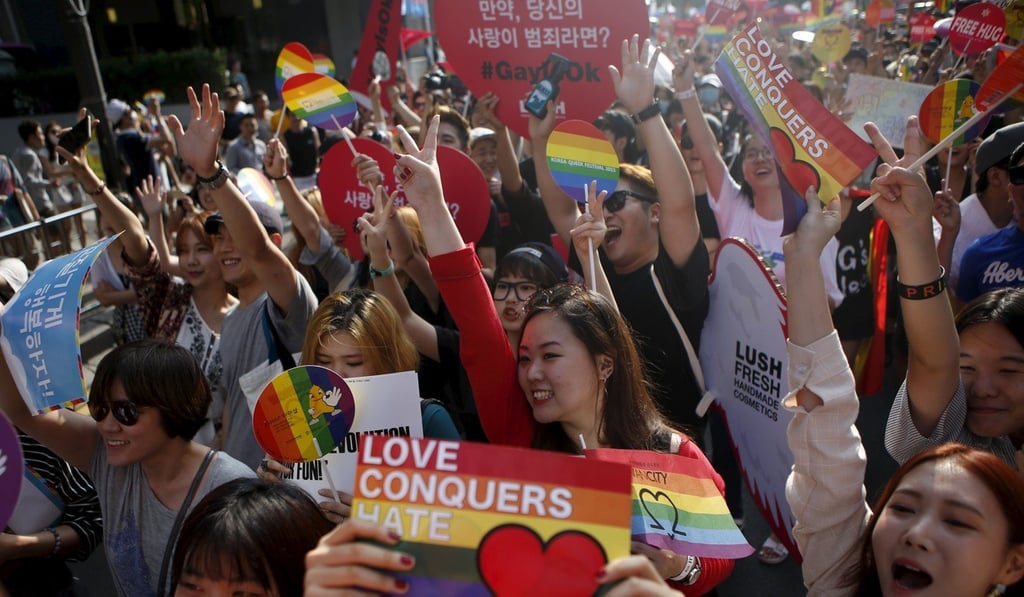Why is South Korea so intolerant of its gay community?
A highly conservative society that emphasises traditional gender norms, and rampant gender inequality, contribute to an environment in which 58 per cent of the country is against same-sex marriage

Last weekend, Incheon, South Korea’s second-biggest port city, held its first-ever gay pride parade. Things took a violent turn, however, as more than 1,000 anti-gay protesters, including Christian groups, verbally and physically pushed back the 300 parade participants. The event was expected to last 20 minutes, but took hours due to the conflict.
Since 2003, homosexuality has no longer been classified as “harmful and obscene” in South Korea, but discrimination against the community remains widespread. While the country’s national human rights commission act states that individuals cannot be discriminated against on the basis of their sexual orientation, members of the LGBTI community say there is little actual protection for them in their daily lives.
“LGBTI [people] are a hidden society in Korea,” said Natalie, a queer-identifying woman in her early 30s whose name has been changed to protect her identity. “We know we exist but it is very hard to be accepted as a normal member of society. People think it’s a disability or a mental illness; even though medical experts have said it’s not, many Koreans still think that.”
In South Korea, members of the LGBTI community often refer to themselves as i-ban-in or “second-class citizens”, a play on the term for “regular person”. Many remain closeted to keep their jobs and relationships.
In a 2017 poll by the National Human Rights Commission of Korea, 92.6 per cent of LGBTI people surveyed said they worried about becoming the targets of hate crimes. A Gallup Korea poll the same year found 58 per cent of Koreans were against same-sex marriage, while 34 per cent supported the idea, and 8 per cent remained undecided.

“If someone is revealed as gay at work, they are not fired but are often bullied. People won’t talk to them, or co-workers may feel weird around them, so relationships become uncomfortable,” Natalie said. She said lesbians had a harder time, noting the country’s gender inequality: “First, they are gay, second they are women.”
For out LGBTI people living in the country, fitting in is made even harder by highly conservative traditional gender norms – particularly in a nation where all male citizens between the ages of 18 and 35 must perform two years of mandatory military service.